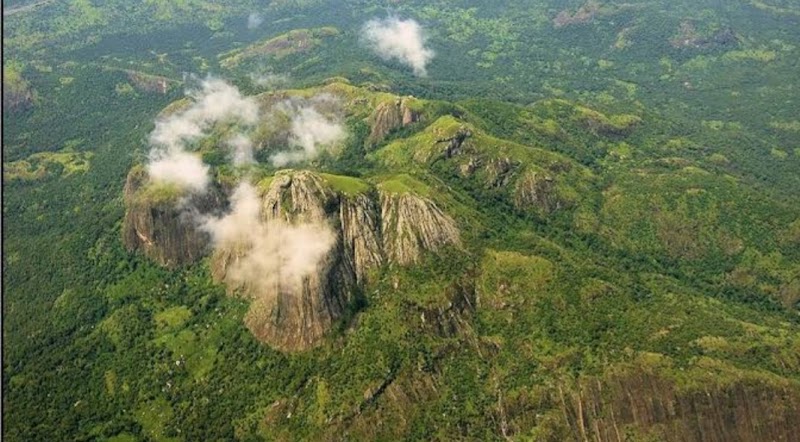
Exploring Local Market Days in Obubra, Cross River State
Obubra’s local market days offer a vibrant glimpse into the heart of Cross River State, where tradition and trade come alive each week. Experience bustling stalls, fresh local produce, and handcrafted goods in a setting rich with culture and community spirit.
Arrive Early for Best Experience
Markets begin bustling just after dawn, with the freshest goods and most lively atmosphere available in the early hours before midday heat sets in.
Wear Comfortable, Sturdy Footwear
Uneven, sometimes muddy paths require shoes with good grip; sandals or open shoes may not provide enough support across market terrain.
Stay Hydrated with Local Drinks
Bring a refillable water bottle and sample refreshing local options like palm wine or freshly squeezed juices to beat the tropical heat safely.
Carry Local Currency and Be Ready to Bargain
Cash is preferred; while some bartering still occurs, familiarity with local prices helps avoid overpaying and fosters genuine exchanges.
Exploring Local Market Days in Obubra, Cross River State
Each market day in Obubra bursts to life with a pulse unique to this corner of Cross River State—where commerce, culture, and community intertwine in vibrant bursts of color and sound. Situated about 27 kilometers northeast of the regional hub, Calabar, Obubra's local markets offer more than just trade; they invite visitors to walk through a living gallery of local produce, crafts, and tradition. These market days occur weekly, with notable markets like Ikom, Nde, and Afafanyi attracting traders from surrounding villages, making each visit both an immersion and an opportunity.
Navigating the market begins early; by dawn, vendors set up wooden stalls and woven mats, loading in yams, cassava, bananas, spices, and handwoven textiles. The terrain is a patchwork of earthen paths and shaded alleys flanked by palm and mahogany trees whose leaves flicker in the morning breeze, casting dancing shadows across the lively stalls. Foot traffic moves briskly but deliberately, with a low hum of barter punctuated by bursts of laughter and shared stories.
For the adventurer, market day is more than a trading post—it's an outdoor classroom where local life observes its rhythm in everything from the selection of fresh fish to the intricate beadwork displayed by artisans. Moving through the stalls demands sturdy footwear; the paths can be uneven, with occasional puddles after tropical rains that challenge balance and patience alike. Expect to cover between 3 to 5 kilometers as you weave through various market sites, with the day’s temperature hovering from a cool 22°C in the early morning to highs of 30°C by midday.
Plan your visit by arriving early to catch the freshest goods and avoid the mid-afternoon heat. Carry a reusable water bottle—local vendors often sell chilled palm wine or freshly squeezed fruit juices, welcome for their hydration and a chance to engage in authentic exchanges. Currency is king here, but the ancient local customs of barter and conversation remain alive; don’t hesitate to ask prices and compare.
Local market days provide an unvarnished insight into the rhythms of life in Obubra. The indomitable spirit of the people, their connection to the land, and the practical exchange of goods all demand respect and understanding. This experience is no spectator sport—it invites participation with an open heart and an observant eye, rewarding with stories, memories, and souvenirs that carry meaning beyond their weight in value.
Nearby Trips
All Adventures
Boat Charters
Water Activities
Adventures near Obubra, Cross River State
Discover the unique and memorable adventures that make Obubra, Cross River State special.
Frequently Asked Questions
When do market days typically occur in Obubra?
Market days in Obubra are usually fixed weekly, with major markets like Ikom, Nde, and Afafanyi operating mostly on specific days such as Thursdays and Saturdays. It’s best to confirm the exact schedule locally as it can vary between villages.
What kind of goods are commonly sold at these markets?
You’ll find a range of products including fresh local produce like yams, cassava, vegetables, spices, palm oil, handmade crafts such as woven fabrics and beadwork, and occasionally fresh fish and meat.
Are the markets suitable for casual visitors or only for locals?
The markets welcome visitors and are great for anyone interested in local culture. While primarily serving locals, vendors are used to tourists and can guide toward interesting goods, though a respectful approach to bargaining is necessary.
Is it safe to photograph people and goods in the market?
Yes, photography is generally welcome if done respectfully. Always ask for permission before photographing individuals, especially vendors, as trust is an important part of these interactions.
What should I be aware of regarding environmental impact?
Markets generate waste, and plastic litter can be an issue. Visitors should avoid disposable containers and carry reusable bags to help minimize environmental footprint while supporting local waste reduction efforts.
Are there local delicacies I should try when visiting the market?
Definitely try freshly squeezed fruit juices, local snacks like puff-puff (fried dough balls), and palm wine if available. These give an authentic taste of the region's culinary traditions.
Recommended Gear
Comfortable Walking Shoes
Provides support and protection on uneven, sometimes muddy terrain common in market areas.
Reusable Water Bottle
Helps keep you hydrated, especially during hotter months when fresh liquids become necessary.
Sun Hat or Cap
Protects against sun exposure during peak sunlight hours.
Light Rain Poncho
Useful for sudden tropical rain showers that frequently visit during the wet seasons.
Local Insights
Hidden Gems
- "A quiet riverside spot near Afafanyi market where locals gather to relax after market day."
- "An informal craft corner in the Nde market showcasing unique coral bead jewelry."
Wildlife
- "Keep an eye out for colorful hornbills and weaverbirds flitting through the market’s tree canopies."
- "Monkeys sometimes lurk in nearby trees, curious about the crowd and food."
History
"Obubra’s market culture stems from centuries-old trade routes linking interior communities to coastal regions, preserving indigenous trading systems and fostering deep social connections."
